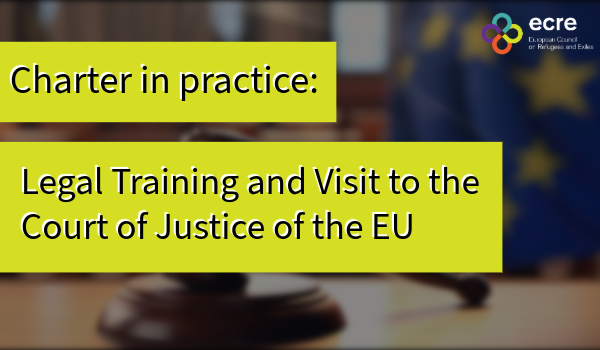In the context of ECRE’s ongoing WILL project (With Lawyers for Lawyers) which aims to increase the use of the Charter of Fundamental Rights of the EU in asylum litigation, ECRE is organising a training event in Luxembourg that will focus on the role of the Charter in asylum litigation and the use of the preliminary reference mechanism in shaping up asylum jurisprudence.
The event “The Charter in practice: Legal training and visit at the Court of Justice of the EU” will take place in Luxembourg (city), Luxembourg, on 4 June 2024. During the training, participants will have the chance to engage with experts on the Charter of Fundamentals Rights, lawyers’ networks as well as lawyers with experience litigating cases before the Court of Justice of the EU (CJEU) in the context of preliminary references. The training will be followed by a visit to the CJEU, which will take place on the morning of 5 June 2024 and will include a presentation by a Court official and attendance of a hearing. You can find the agenda here.
We invite lawyers with practical experience in asylum litigation to express their interest using this registration form. The deadline for registration is 10 April 2024. ECRE will contact participants to confirm registrations soon after the deadline. We therefore ask all candidates not to book any travel or accommodation before receiving a confirmation of registration. As the maximum capacity for this event is 30 participants, registrations will be confirmed as they arrive. However, ECRE will ensure that participation reflects diversity in experience, country representation, as well as gender equality. Travel, accommodation and subsistence expenses will be co-financed for all participants by applying an all-inclusive flat rate; for more information on the reimbursement of costs, please consult the registration form.
Funded by the European Union. Views and opinions expressed are however those of the author(s) only and do not necessarily reflect those of the European Union. Neither the European Union nor the granting authority can be held responsible for them

